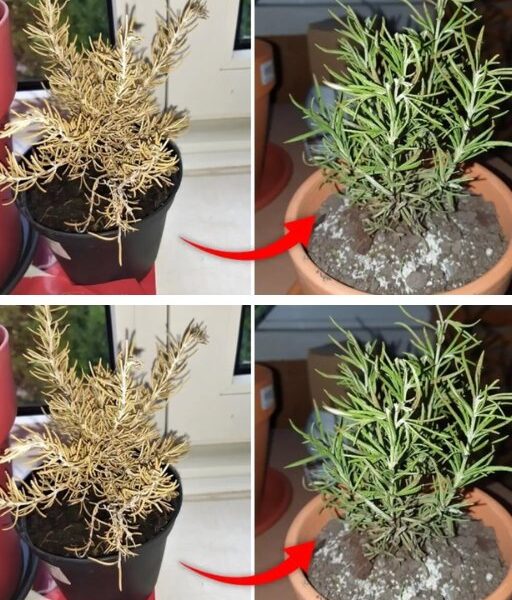We explain why your rosemary plant dries up
Rosemary is one of my favorite aromatic plants in my garden ; its scent when I come into contact with it gives me energy to start the day.
At first I had trouble keeping this plant alive, but by following certain guidelines you can prevent that from happening again .
We recommend: How to marinate meat for grilling so that it is soft, juicy and delicious
A good way to start when you get a new plant is to do a little research ; learning about its origin and replicating its natural environment ensures that you don’t make any mistakes when caring for it .
I’ll show you how to care for it if it starts to dry out. Make sure you incorporate this knowledge into your garden and you’ll be able to reap the rewards of an aromatic herb that has multiple uses.
Not only can you use it in cooking , but its leaves can also be prepared in infusions for oily hair .
1- Location Problem
Rosemary , which is native to warm climates , needs plenty of sunlight and warmth to survive ; however , it can also withstand cooler temperatures . Usually, when I am asked about this issue, it is because the person has an indoor rosemary plant that does not adapt well to those conditions and tends to die .
Solution:
If you are going to keep the plant indoors , find a spot in the garden with the most sunlight and slowly acclimate it to its new environment by placing it there for increasingly longer periods of time .
If you don’t have an outdoor space , keep in mind that your plant wo n’t grow as quickly and try to locate the sunniest area inside your house .
2- Drainage problem
The plant is suited to dry climates and does not tolerate humid areas , as moisture will cause it to wilt from the base .
If the soil is too clayey, it will retain water and not drain properly.
To check the soil before planting , water the area generously and see if it has drained after a few hours or if it has become waterlogged due to poor aeration .
Solution:
Before moving your rosemary, make sure you have the ideal substrate ready . It should be filled with compost or organic matter to which vermiculite or perlite has been added , which will loosen the clay soil .
An affordable alternative to vermiculite is dried horse manure ; it has a spongy quality that helps water drain naturally .
You can also choose to grow your rosemary on an elevated area and create a mound ; this way , gravity will help remove excess water .
3- Irrigation
It is better to give this plant just enough water than too much . I made the mistake of thinking that when it started to dry out at the stem, it meant it needed water , so I soaked it .
Unfortunately , my rosemary died then . Keep in mind that too much moisture can cause fungus to spread , so check the soil before deciding whether or not to water again .
Solution:
Allow the soil to dry out for a few days before repotting your rosemary plant to avoid complications .
To prevent the plant from getting sick due to high humidity levels , I suggest you add an anti-fungal agent .
A horsetail solution in a ratio of two to ten will be great for this purpose and will also give the plant extra strength thanks to its high silica content .
